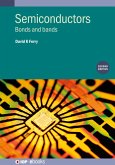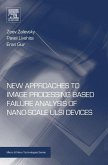Following their first observation in 1984, random telegraph signals (RTS) were initially a purely scientific tool to study fundamental aspects of defects in semiconductor devices. As semiconductor devices move to the nanoscale however, RTS have become an issue of major concern to the semiconductor industry, both in the development of current technology, such as memory devices and logic circuits, as well as in future semiconductor devices beyond the silicon roadmap, such as nanowire, TFET and carbon nanotube-based devices.
It has become clear that the reliability of state-of-the-art and future CMOS technology nodes is dominated by RTS and single-trap phenomena, and so its understanding is of vital importance for the modelling and simulation of the operation and the expected lifetime of CMOS devices and circuits. It is the aim of this book to provide a comprehensive and up-to-date review of one of the most challenging issues facing the semiconductor industry, from the fundamentals of RTS to applied technology.
It has become clear that the reliability of state-of-the-art and future CMOS technology nodes is dominated by RTS and single-trap phenomena, and so its understanding is of vital importance for the modelling and simulation of the operation and the expected lifetime of CMOS devices and circuits. It is the aim of this book to provide a comprehensive and up-to-date review of one of the most challenging issues facing the semiconductor industry, from the fundamentals of RTS to applied technology.
Dieser Download kann aus rechtlichen Gründen nur mit Rechnungsadresse in A, D ausgeliefert werden.









